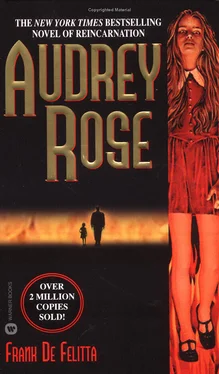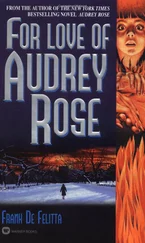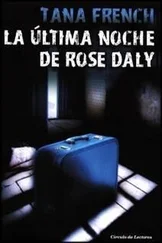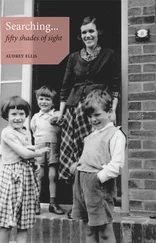MR. MACK: Your Honor, I move that all of Mr. Velie’s remarks be stricken from the record as being argument and that the jury be instructed to disregard them.
THE COURT: Motion sustained. The court reporter will strike the entire last statement by Mr. Velie from the record, and the jury is instructed to disregard it. You may call your next witness, Mr. Mack.
MR. MACK: I have no further witnesses at this time, Your Honor. The defense rests.
THE COURT: Are you prepared for rebuttal, Mr. Velie?
MR. VELIE: Your Honor, in the light of Mrs. Templeton’s testimony and in the light of the fact that I have determined that I am unable to cross-examine her because of her condition, I do require additional time to prepare my rebuttal portion of the case. I therefore request a recess until tomorrow morning.
THE COURT: Very well. Court will reconvene at nine o’clock in the morning.
(Whereupon the above proceedings were concluded)
Judge Langley’s hammer shot on the gavel brought down the curtain on the performance. In this heightened moment the audience was held in the grip of a tomblike hush, lightly punctuated by the soft aftersobs of the witness. In the next moment the air was rent by what seemed a thunderous ovation—a dramatic and explosive outburst of surprise, delight, approval, and amusement as spectators scrambled noisily to their feet and reporters launched a wild gallop to the doors.
In the midst of pandemonium, Janice Templeton remained seated in the witness chair, her stricken face lowered into her hands, blotting out the scene, taking deep, even breaths to control the tears and the chill in her bones. She could sense the hot flickerings of a thousand eyes upon her, including Bill’s eyes—oh, God, what hatred must be in them!—yet she felt cleansed, relieved, the anxiety that had been eating at her these past months suddenly gone.
All at once, she became aware that the courtroom noise had diminished—were they all staring at her in silence?—which caused her to open her eyes and look up. The first face to swim before her blurred vision was Elliot Hoover’s, hovering in the forefront of the clearing courtroom, surrounded by smiles and sparkles of curiosity as far as the eye could see. Flanked by two guards, Hoover had purposely remained behind, waiting for Janice to look up, insisting on his right to thank her, to relay to her his gratitude for all she had said, for all she had risked in his behalf. Her vision clearing somewhat, she saw that tears had formed in his eyes, too, and that he was smiling at her and nodding his head in a gesture that said, “I know, I know.”
Janice wanted to look away but dared not shift her gaze to the side of the room where Bill was sitting. It was too soon to confront him; she was too weak to cope with all the problems that awaited her in that quarter.
What finally brought her attention around was the sound of her name, spoken in a low, throbbing voice by Scott Velie.
“Mrs. Templeton,” he said dully, “we’re having a meeting in my office after lunch. Can you be there?”
He looked as he sounded, empty.
“Can you be there?” he repeated.
She felt her head nod and saw him turn away and walk briskly to the door.
It was at this moment that she worked up the nerve to face Bill and, when she did, discovered that his seat was empty.
Scott Velie, senior deputy district attorney of the City of New York, sat alone in his office.
His eyes scanned the somber shelves of lawbooks rising to the ceiling on each wall, found its darkly stained, lemon-oiled atmosphere and soft resonances conducive to thought, restful to spirit. It was his think tank, hall of memories, and phone booth, all rolled in one. It fitted his moods and temperaments like an old leather glove, calming him during troubled times, energizing him when weariness threatened to clog his brain, and gently stroking him when the depressions struck.
Why had his instinct failed him this time?
Normally, he would have sensed that Mrs. Templeton was on the edge. He had seen the signs in her darting looks, her too-quick smile, in the hundred little mannerisms she employed to camouflage her fears and guilts. All the signposts had been up. She had all but screamed to him that she was ready to crack. Why had he failed to see it?
Velie knew that his instinct, that rare and delicate instrument, had gone wrong. At age sixty-three, after years of service, it had failed him.
In thirty-two years he had seen the full pageant of human misery walk through his door—all ages, sexes, colors, shapes, sizes, and with every kink in the book: junkies, pushers, prosties, pimps, thieves, kooks, killers, you name it. He had felt sorry for many of them, especially the ones stamped for misery at birth, the professional losers, who, even in this great land of opportunity, never seemed to find their way. He knew about these people. They formed the backdrop of his own youth and still lurked in the corners of his memory. Sometimes, standing across his desk, he’d recognize his own face in the hopeless, fear-ravaged visage of a young felon and wonder how he’d managed to escape a similar fate. Sometimes he’d see himself so clearly he’d allow himself to be plea-bargained by some green-behind-the-ears-attorney and not feel he had abused his trust.
Then there were the Hoovers—the ivory-white Hoovers flushed with all the benefits of a doting society, the people of intelligence and position who slid through life plucking up the breaks as they dropped in their laps—who had nothing better to do with their lives than indulge their fantasies with harebrained schemes and crackpot notions and then feel they had the legal right to inflict their sick delusions on decent, law-abiding people. Janice Templeton’s testimony was proof of Hoover’s contaminating influence on the helpless, the good people. She wanted so desperately for her child to be spared the pain and suffering of mental illness she was willing to buy any crackpot theory. She had accepted Hoover’s reincarnation claims as a terminal patient accepts a phony cancer cure—out of desperation. Hoover not only had buffaloed her, but had surely destroyed a good marriage.
Velie could see that it was all over between the Templetons from the way they sat and looked away from each other during their meeting. They were like strangers. Worse, like enemies. She couldn’t face him, and he couldn’t bear to look at her. From her cool, bland expression, she seemed to be in another world—on an astral plane of her own. The only time she reacted was when Velie made his suggestion. Her face became like chalk. The husband, on the other hand, seemed to grow a couple of feet. He really sparked to the notion. Especially when he saw his wife’s reaction, when he saw the color drain from her face and her expression turn lunatic. It was his wife’s stunned reaction that made him rise to Velie’s bait; not because he thought that much of it, but to punish his wife. Velie had never seen such venom in a smile of pleasure. Yes, Hoover did a great job on those two. Brought out their finest instincts.
When Velie sprang his gimmick on them, he never expected either of them to agree to it. He hardly expected himself to agree to it. It was pure hokum, the kind of horseshit Mack would fling and totally alien to his own nature. Yet this was the kind of arena he was in, the kind of game they were playing, and if they start throwing horseshit at you, you throw horseshit back. Sometimes it was the only way to deal with the Brice Macks—the horseshit throwers. Well, he knew his way around this sort of arena, too. He knew enough about horseshit to be able to throw it back at the best of them.
Scott Velie rose and walked to the window. The late-afternoon sky was blue for a change. Maybe the weather would hold out through the weekend. He had promised Ted and Virginia that he’d spend the weekend with them at their lodge in Pennsylvania and was looking forward to it. It would be good seeing them again, spending a few days with old friends. Since Harriet died, that’s all he had now, all he could depend on—the kindness of old friends.
Читать дальше












